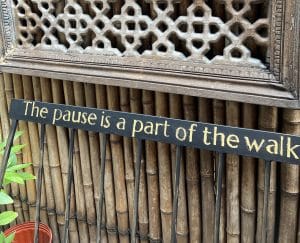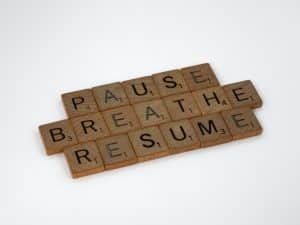
Welcome to the weekend! Hope you’re not feeling too “cinco de groggy” this morning, but such as are the hazards of pseudo holidays that fall on Thursdays. Two aspirin and a little meditation should do the trick. Fortunately, our “no-fail” mindfulness challenge for this weekend doesn’t require a lot of exertion. I’m not saying it’s easy, either, but I’m not sorry about that.
This past week, our topic has been apologies, and how difficult it can be to offer them – even when we really mean them – without some expectation of gratitude or forgiveness from the other person. Don’t get me wrong. I’m all about forgiveness. But, the distinction here is that how our apology is received should not effect our ability to make it, wholeheartedly, and to manage the discomfort of having to make it in the first place all by ourselves. Receiving apologies is a topic for another day. Of course, the other thing we often do is try to share the blame, and come up with reasons why whatever happened isn’t entirely our fault or couldn’t be avoided, which may have merit but are also about pushing away discomfort.
This weekend’s challenge may be either internal or external, depending on what you’re working with. It could involve reflection of a past event, or real time engagement with something going on right now. First things first, you need a little mindfulness. Find some time for meditation (you know by now that I’m a fan of guided meditations, apps, and all those cool resources that are out there to help with this!) or mindful walking, or whatever works for you. While you’re practicing, you won’t be thinking actively about anything, because as you know, mindfulness is your chance to observe your thoughts without engaging them.
You can, however, set an intention beforehand about gaining some clarity into a particular situation in which you did, should, or perhaps should have apologize(d). Use your mindfulness practice to center yourself and just connect with your breath and body, without the effort of “working” on the question. Just know it’s there. After you’re finished your practice, take a few extra minutes to reflect on the situation, with special consideration of what you might be expecting from it. Are you hanging on to the need to share the blame, or the desire to be fully forgiven, or – dare I say it – are you maybe not even owning the fault at all?
It’s messy at times, this business of getting real with ourselves. But the payoff for doing so in situations like these is that you learn a lot about your own power. Apologizing takes courage. It makes us vulnerable. Under the best circumstances, it can provide both freedom and deep human connection. In some cases, however, neither are readily available, and we have to be ok with that. We have to be responsible for freeing ourselves, and knowing that saying you’re sorry with a full heart, even for a small thing, and even without response, can be an unapologetically big deal.
Photo credit: Valeria Boltneva



